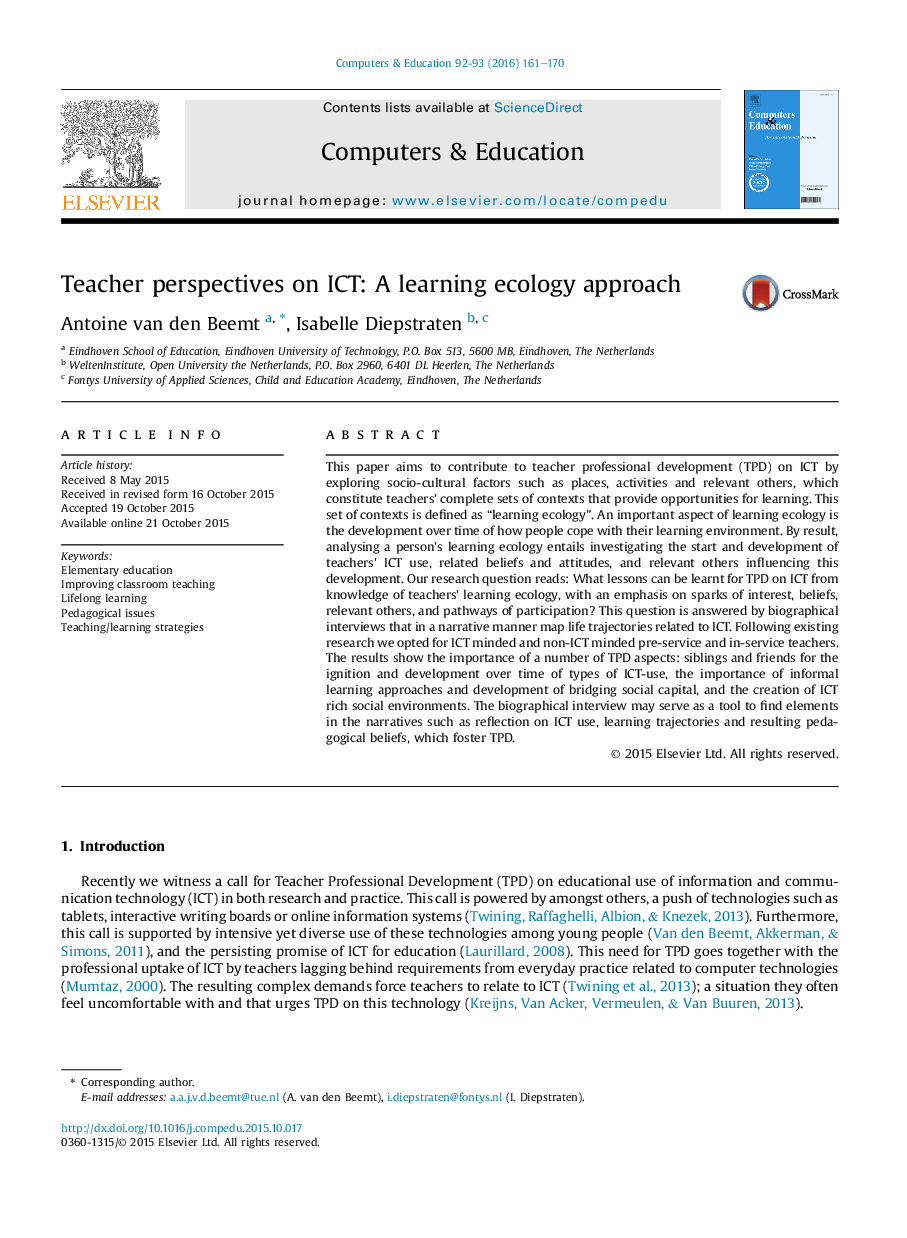| Article ID | Journal | Published Year | Pages | File Type |
|---|---|---|---|---|
| 348223 | Computers & Education | 2016 | 10 Pages |
•Socio-cultural factors are explored to contribute to TPD on ICT.•These factors are investigated by means of biographical interviews.•Categories of teachers were defined as ‘ICT minded’ versus ‘Non-ICT minded’.•Siblings and friends, informal learning approaches, bridging social capital are important.•Biographical interviews may serve as a tool to find elements which foster TPD.
This paper aims to contribute to teacher professional development (TPD) on ICT by exploring socio-cultural factors such as places, activities and relevant others, which constitute teachers' complete sets of contexts that provide opportunities for learning. This set of contexts is defined as “learning ecology”. An important aspect of learning ecology is the development over time of how people cope with their learning environment. By result, analysing a person's learning ecology entails investigating the start and development of teachers' ICT use, related beliefs and attitudes, and relevant others influencing this development. Our research question reads: What lessons can be learnt for TPD on ICT from knowledge of teachers' learning ecology, with an emphasis on sparks of interest, beliefs, relevant others, and pathways of participation? This question is answered by biographical interviews that in a narrative manner map life trajectories related to ICT. Following existing research we opted for ICT minded and non-ICT minded pre-service and in-service teachers. The results show the importance of a number of TPD aspects: siblings and friends for the ignition and development over time of types of ICT-use, the importance of informal learning approaches and development of bridging social capital, and the creation of ICT rich social environments. The biographical interview may serve as a tool to find elements in the narratives such as reflection on ICT use, learning trajectories and resulting pedagogical beliefs, which foster TPD.
